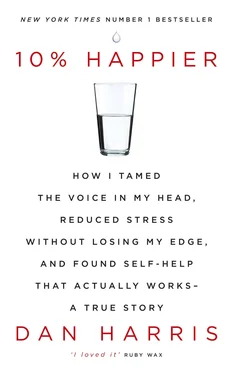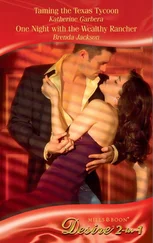It wasn’t just the length of the stories that I liked, but also the variety. The show matched my catholic interests. On any given night, they were as likely to do a hard-hitting investigation as they were a profile of a movie star or a story about doggy fat camps. In recent months, Nightline had given me even more chances to slake my thirst for comforting the afflicted and afflicting the comfortable. I’d gone off searching for endangered tree kangaroos in Papua New Guinea, hunting down American sex tourists in Cambodia, and confronting pastors in the Congo who made money by convincing parents to submit their children to painful exorcisms.
Problem was, there was another contender. Bill Weir, the weekend GMA anchor. Bill had joined ABC News in 2004 from the local affiliate in Los Angeles, where he was the sports guy. He exuded an old-school and sometimes brooding cool. Notwithstanding his lack of hard-news pedigree, Bill very quickly established himself as an excellent journalist, covering major breaking news as well as producing amazingly inventive feature stories.
My favorite example of the latter was Bill’s profile of Don LaFontaine, the guy who did all the voice-overs for movie trailers. LaFontaine’s voice was so deep that when he delivered his classic lines (“In a world . . .”), it sounded like he had a third testicle. Instead of just doing a traditional sit-down interview, Bill had LaFontaine follow him around L.A., narrating his life through a handheld microphone. The best scene took place at an outdoor café, where Bill was nonchalantly eyeballing the menu.
LaFontaine: “He’s the world’s deadliest assassin. His identity is a secret—even from himself. This summer, love . . . gets lethal.”
Weir: “I’m thinking about getting an omelet.”
LaFontaine: “I’m thinking about getting a salad.”
Weir: “Is it too early for a salad?”
[cut to a close-up of LaFontaine] “It’s never too early
. . . for a salad.”
It was gingerly suggested to me by the bosses that perhaps I should also consider the possibility of moving into Bill’s spot on weekend GMA if he got the nod for Nightline . Initially, I dismissed this as a lateral move, but was ultimately convinced to reconsider. This assignment, I came to realize, would not only quadruple my airtime (from a half hour on Sundays to two full hours on Saturdays and Sundays) but it would also provide me with a chance to try a different type of broadcasting, to break out of the mold of the staid, Jennings-esque anchorman. Morning television wasn’t just one guy and a teleprompter; it was live, loose, and largely unscripted. Moreover, mornings were where the action was in network news. GMA had the younger viewers that advertisers wanted to reach, which made the show the profit center for the entire news division.
I said I was up for it, but made it clear that my first choice was still Nightline . I was now in the tricky position of arguing for both jobs simultaneously—and neither was a lock. I kept picturing the worst possible outcomes. Prapañca , in full effect: No promotion → Eventually lose my hair and, as a consequence, all future job prospects → Flophouse in Duluth.
I was granted an audience with David Westin, where I would be given a chance to plead my case. At the appointed hour, I walked one flight up from my office to the Fifth Floor. After the requisite wait on the couch outside his office, I was whisked inside by his secretary, and greeted by David’s wide grin and firm handshake.
He listened politely as I made my case, first for Nightline , then for GMA . He asked some smart questions, which I answered to the best of my ability. I thought I did okay, but it was hard to tell; like all skilled managers, David was a master at uttering a lot of words without actually committing himself to a position. I knew not to push too hard, to minimize the displays of plumage. Anyone’s affability can turn brittle under too much pressure.
Our business concluded, the rest of the meeting moved on to non-work issues. Here things became very relaxed. There was banter and badinage, and I left feeling deceptively buoyant. This lasted about ninety seconds. By the time I’d made it downstairs to my office, I had thoroughly soured. Given a moment to reflect, I realized that David had said absolutely nothing concrete or reassuring. In fact, I came away with the vague sense that he was going to pass me over. Worse, I knew it was possible that he wouldn’t make his decision for quite a while.
If ever there was a good time to see if I could summon some mindfulness, this seemed like it. I tried meditating on the couch in my office, but it didn’t work. I just couldn’t clamber up behind the waterfall. Every time I tried to watch my thoughts, to nonjudgmentally observe my frustration over this professional limbo, I didn’t know what to look for—or how to look at it. Wasn’t “noting” just another form of thinking? What the hell am I supposed to be seeing here?
And wait a minute—wasn’t there a practical value to disquiet? Just because my thoughts didn’t have any inherent reality didn’t preclude them from being connected to real-world problems that need to be dealt with.
Here I was back at square one, pondering the same questions I’d been pondering since first reading Eckhart Tolle. I was still unshakably certain that looking at a problem from all angles and searching for the right move gave me an edge. And yet I was also still concerned that too much worrying was driving me nuts.
I spent the ensuing weeks in a bit of a funk. I tried to “note” it, but I didn’t know if I was being mindful or just indulging it. I decided it was time to follow a piece of advice from my new friend Mark Epstein.
The event was held in a huge, nondescript function hall at the Sheraton Towers in midtown Manhattan, and as soon as I got there I regretted it. The place had all the charm of an offtrack betting parlor. It was packed with mostly middle-aged women wearing dangly earrings and intricately arranged scarves. Any one of them could have been the yoga teacher who made me strip down to my underwear as a child.
I’d seen worse, of course, in the self-help trenches, but this was different. I was here at this three-day Buddhist conference not as a journalistic observer, but as a paying customer who’d come for his own personal purposes, a thought that propelled just the tiniest bit of vomit into my mouth.
Making matters worse, this was proving to be very embarrassing in front of a new friend of mine, who I’d roped into coming along. His name was Jason. He was the drummer for one of my favorite bands, Mates of State. They were a husband-and-wife indie act who wrote infectious pop songs about suburban angst. I had done a feature story on them for Sunday World News , focusing on how they took their two young children on tour and wrote a blog about it, called Band on the Diaper Run . After the story aired, Bianca and I struck up a friendship with Jason and his wife, Kori. Jason was one of the few people to whom I had successfully evangelized about Buddhism. Interestingly, he voiced a concern about meditation that seemed to be a corollary to my ongoing security/insecurity conundrum. He worried that if he became too happy, it would defang his angst and disable his ability to write music. A comedy writer friend of mine had said something similar—that he was worried meditation would make him less “judgmental,” and therefore less funny.
Here in the hall, Jason—who was six-foot-three, had fashionably long bangs, and could pull off wearing skinny jeans—stood out like a sore thumb. I was having a mild freak-out. I had been talking up Mark Epstein to Jason for months, and now Mark was up on the stage, seated alongside two other Buddhist teachers, presiding over this horror show.
Читать дальше












